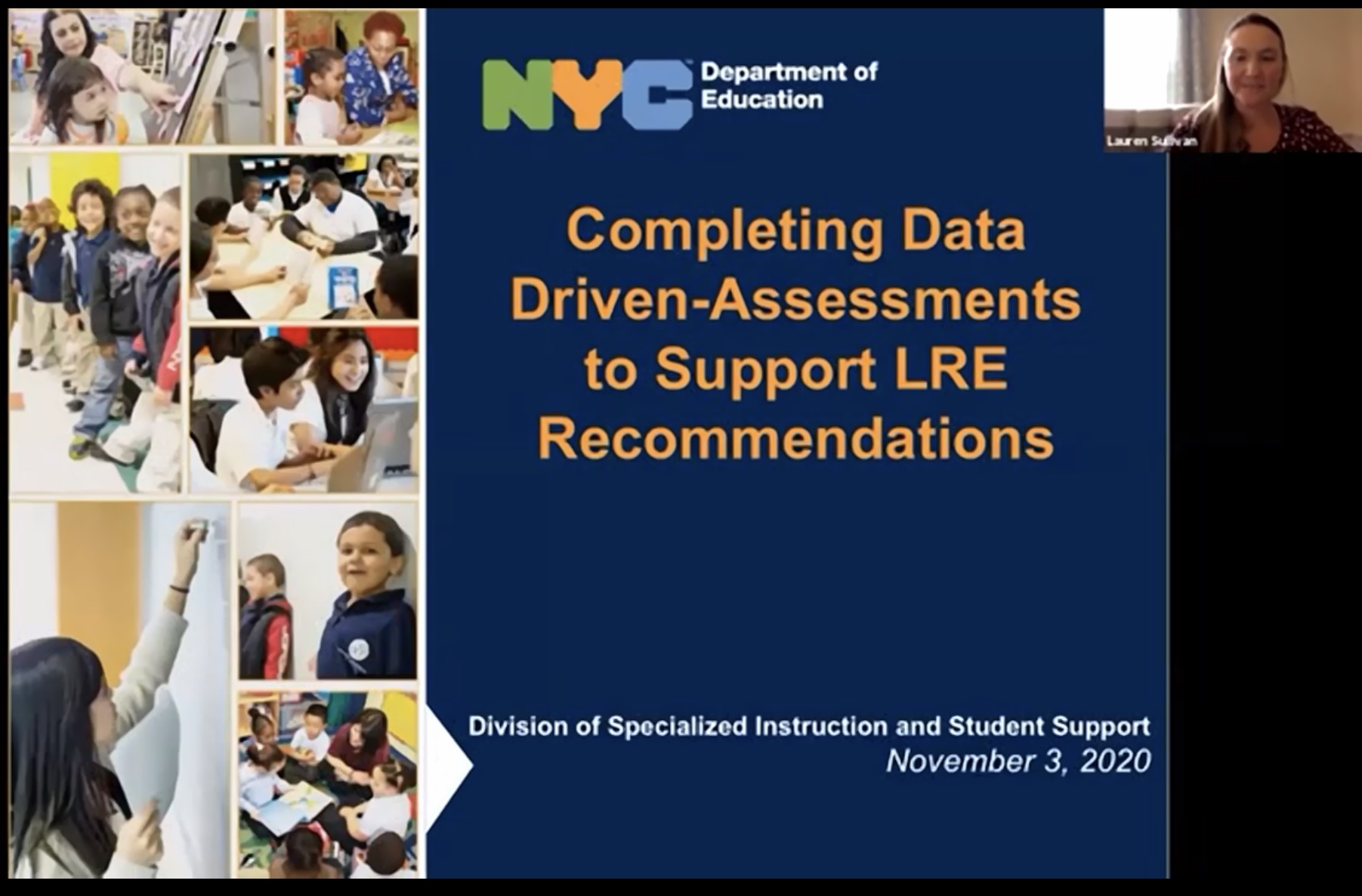Screen Test: The Challenges of Special Needs Assessments During Remote and Hybrid Learning
Trying to get accurate assessments of students with special needs during remote learning continues to be a big challenge

Tools and ideas to transform education. Sign up below.
You are now subscribed
Your newsletter sign-up was successful
“One of the most difficult tasks regarding remote learning is in the area of assessment,” says Cassie Gillespie, Special Education Middle School Teacher at Wolf Branch SD 113 in Swansea, Illinois. “Often, students’ IEP goals are based on social, emotional, or self-management needs that are school specific which makes it difficult, if not impossible, to record progress while students are in the home setting.”
Parents also have a lot on their plates, so many can be resistant to taking on the responsibility of charting a child’s progress or keeping anecdotal records in one or more areas that a teacher or aide might do, which makes it difficult for teachers and case managers to track any growth for that student.
“Accurate academic assessment is also trying,” Gillespie says. “I have a few students diagnosed with ADHD, who have oral reading fluency goals to improve reading deficits. Because fluency includes elements of both speed and accuracy, when various home factors are not in the teacher’s control, the data that we are able to collect does not necessarily reflect growth/loss in the variables we are measuring.”
For example, a student’s loss of 18 words per minute could be because a TV was on in the other room, a cat jumped up on a table, or there was a poorly timed Amazon delivery. When it comes to remote formative and summative student assessments, there are just so many potential roadblocks beyond an educator’s control, says Gillespie.
Challenges Within the Referral System
Recently, organizations such as the National Association of School Psychologists and the American Psychological Association have shared significant concerns with the continued use of standardized norm reference assessments once schools reopened.
“We have to keep in mind that our students have faced circumstances that are unique to them during this global pandemic,” said Lauren Sullivan, Director of Evaluations and Eligibility at NYCDOE Special Education Office, during the “Completing Data Driven Assessments to Support LRE Recommendations” session of the recent NYC DOE “Beyond Access” virtual forum. “They have been through significant stressors and a change to remote learning for months—so are not represented in that normal sample. We call on psychologists to do what they're trained to do—to analyze, to consult, to think deeply and critically and ultimately to make connections using patterns of strengths and weaknesses to understand a student's learning profile in a comprehensive matter.”
Watch the full session:
Tools and ideas to transform education. Sign up below.
Comprehensive Data-Driven Assessment Approach
The comprehensive data-driven assessment (CDA) is a mixed methodology approach, said Dr. Soye Zaid-Muhammad, NYC DOE school psychologist at P.S. 89. “It's not just the quantitative testing that we're used to, but also valuing the information that comes from our parents, from our providers in the community such as pediatricians and teachers,” said Zaid-Muhammad. “In the standardized model, we're lacking information from the people that spend the most time with the child. We can gain a great deal of information to spackle in the gaps from number-based data testing, just by asking the right questions.”
Zaid-Muhammad said that CDA is “not just a knee-jerk reaction to Covid-19, but an improvement in assessment practices I'm grateful we have.”
Ecological Framework
“Historically, culturally, and linguistically, diverse students are not fairly represented in standardized assessments,” said Brenda Figueroa, NYC DOE bilingual school psychologist, during the presentation.
Figueroa explained how she uses an ecological framework to be creative and look at the child holistically, which includes CDA. This collaborative approach provides the framework to systematically assess multilingual learners in a non-discriminatory manner, and includes relevant records, observations, parent/teacher/student interviews, the student’s social and medical history, and current and previous teacher reports.
New flexible assessment forms include multiple rating scales. “We also collect sample classwork to analyze student academic performance across multiple years and include the acculturation rates,” Figueroa said. “This creates a data-driven hypothesis to develop culturally and linguistically appropriate interventions and recommendations.”
RTI Considerations, Post-Shutdown
A response to intervention (RTI) is an academic intervention that provides early systematic and appropriately intensive instruction to children who are at risk or currently underperforming in comparison to same age peers, said Dr. Manal Zoabi, NYC DOE School Psychologist, who also acknowledged the importance of the student reengagement process during the pandemic, which caused unprecedented disruption.
“Students, teachers, parents were tossed into a new reality that impacted everyone's education, but especially our struggling learners,” said Zoabi.
Zoabi said clinicians must ask themselves multiple questions before we even considering special education referrals, including:
- Have students had the chance to reengage with school for an appropriate amount of time? This includes making meaningful social emotional connections with peers and teachers.
- Have students who are considered for referral made some progress in certain academic areas over others, or no progress at all?
“And perhaps most important to note in all of this is that anytime we do an in-person assessment, it really needs to be interpreted with caution due to the current circumstances,” said Zoabi.
Sascha has nearly two decades of experience as a freelance journalist writing for national magazines, including The Washington Post, LA Times, Christian Science Monitor, National Geographic Traveler, and others. She writes about education, travel and culinary topics.

